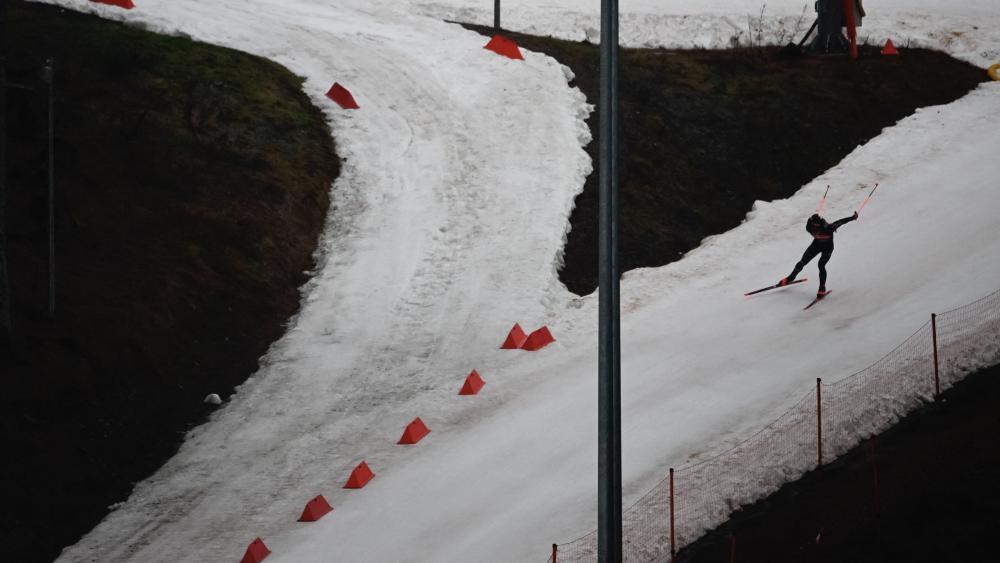
A thin band of snow runs through the forests. © APA/afp / TOBIAS SCHWARZ
Critical conditions in Oberhof, but the races are taking place
Sometimes it's the rain, sometimes the lack of snow, sometimes the mild temperatures: the biathletes struggle with adverse conditions. There is no improvement in sight because of climate change. In Oberhof, the organizers are struggling with well-known problems.
05 January 2024
From: dpa
The sky cleared for just a few moments on the Rennsteig in Oberhof. A short time later, thick fog moved into the biathlon stadium at Grenzadler again and the weak rays of sunshine gave way to the unwanted rain that had put the organizers of the World Cup on alert for days. The good news is: The competitions can finally start on Friday with a day's delay and the fears about the upcoming World Cup in Ruhpolding will probably not materialize. However, the organizers and those responsible for the IBU World Association are still facing growing challenges with regard to climate change.
The fact that it can even start in Oberhof is thanks to the large investments in the run-up to the World Championships last year, said former relay world champion Daniel Böhm. A few years ago the weather chaos would have led to a complete cancellation, said the IBU Director of Sports and Events German press agency on Thursday. “Oberhof is one of the few organizers we have that can handle this situation.”
Oberhof is prone to unpredictable weather conditions
Oberhof has repeatedly had to struggle with adverse conditions in the past. In 2016 the races even had to be canceled completely. This caused considerable damage to the company's image at the time. “The first week of January has always been problematic and will continue to be problematic in the future due to the thaw that we are experiencing in Central Europe,” said Böhm. This often happens to Oberhof during this period.Now it could be considered to postpone the hosting of the races in Thuringia. “But I don’t think there is a magic solution,” said Böhm. “We have to look with our candidates to see to what extent these can be combined sensibly. There are many factors that play a role.”
The head of the Oberhof organizing committee is also looking at alternatives. “We have had years in which we had too much snow. But of course, after the last two or three years, we would be happy if we didn't have this stress with the capricious weather. Maybe others would have that,” said Bernd Wernicke. “But first of all, we are happy to continue to be part of the World Cup calendar. That is our goal.”
Adjustments are planned
In Scandinavia, where the season began, there are currently good conditions for biathlon competitions. “But we want to keep our travel activities as low as possible and combine the stops cleverly,” said Böhm. The world association has already made an adjustment for the current application phase for the period from 2026/27, which ends in May.“Basically you have to apply for the entire season. The organizers can express wishes as to why it is not possible during certain periods. But as an association we want to retain the flexibility to combine weekends sensibly in exchange with climate researchers and other scientists,” explained Böhm. You have to look at everything globally: “From the outside it may seem like a simple approach to swap small things. But it only makes sense to look at the overall structure.”
“There is still a lot to do, but it should work.” Daniel Böhm, sports director of the IBU, about the races in Ruhpolding
The previous races in Östersund, Hochfilzen and Lenzerheide have given athletes and fans a “fantastic first trimester,” said Böhm. “Now we see that it can be different.” There is no longer any need to tremble in Ruhpolding, on Wednesday the organizers sent the OK to the world association. “There is still a lot to do, but it should work,” said Böhm. The organizers therefore need to be “flexible and ready at all times. Because the effort has increased and ever larger snow reserves are needed,” said the 37-year-old.
Collaboration with science and industry has been promoted since March 2023 through the “SIEPPUR” project funded by the European Union. This is about “how to advance snow management and technical snow development” sustainably and in a way that conserves resources. “The aim is to create conditions that allow a World Cup to be held even under difficult conditions,” said Christian Winkler, Director of Communications at the IBU.
Edit Profile
You have to sign into use the comment function.
Hermann Zanier
If it doesn't work, it doesn't work. They should hold their competitions on scooters in the summer and expect the athletes to injure themselves every time they fall
05.01.2024 10:11


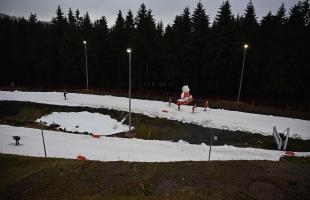
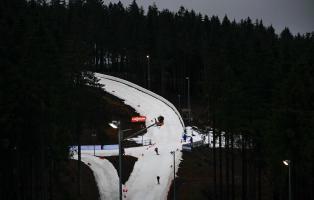
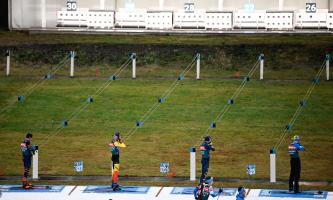
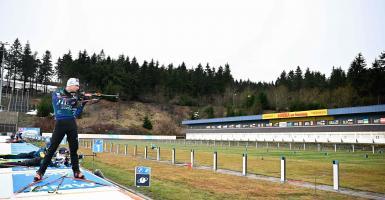
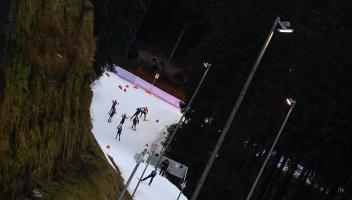
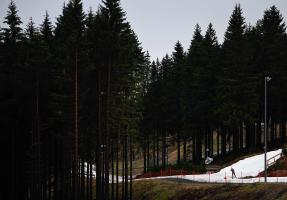






Comments (1)